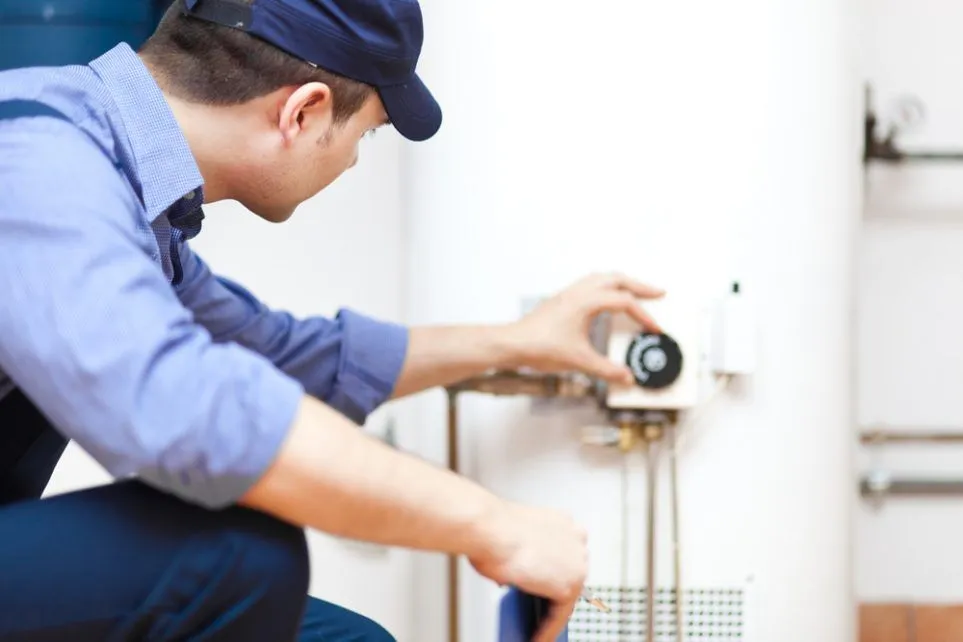Every home relies on its heating system, especially during the chillier months, to provide comfort and warmth. This dependency makes it even more crucial for the system to be in impeccable working order. Imagine preparing for a warm bath after a long day, only to be met with a stream of cold water – an experience many would rather avoid. One of the most common issues leading to such unforeseen circumstances is low boiler pressure. But what is boiler pressure, and how does low boiler pressure affect hot water? Indeed, it does, and it’s an issue that can bring not just discomfort but also underlying concerns about the state of your boiler.
Through this guide, we aim to shed light on the causes, implications, and remedies related to low boiler pressure. Whether you’re facing this issue currently or simply wish to be prepared for the future, understanding the intricacies of your boiler can make a significant difference in how you respond to and manage such challenges.
Understanding Boiler Pressure
Before we delve into the remedies, it’s essential to understand boiler pressure and why it’s so important. In simple terms, boiler pressure refers to the balance of water and air within your boiler system. When the boiler is working correctly, this balance is maintained, allowing your system to function smoothly.
However, if the pressure drops too low or becomes too high, it can impact the boiler’s ability to heat water efficiently. Low boiler pressure means that there isn’t enough water inside the boiler to be heated and circulated to radiators or taps, which in turn affects your supply of hot water and heating.
Common Causes of Low Boiler Pressure
There can be several reasons why your boiler might lose pressure:
- Leaks: Even a small leak can significantly affect the pressure over time. Check for any visible signs of water leakage around the boiler and the connected pipework.
- Bleeding Radiators: If you’ve recently bled your radiators, this can cause a drop in pressure. Bleeding helps remove trapped air from the system, but it also reduces the overall pressure.
- Faulty Pressure Relief Valve: Over time, the valve can become defective, causing a loss in pressure.
- Broken Expansion Vessel: This part helps manage the expansion and contraction of water in the boiler. If it’s faulty, pressure issues might arise.
How to Address Low Boiler Pressure
If you suspect that low boiler pressure is affecting your hot water, here are some steps you can consider:
- Check the Pressure Gauge: Most boilers have a built-in pressure gauge. Usually, the safe pressure reading is between 1 and 1.5 bars. If it’s below 1, you might be facing a pressure issue.
- Repressurise the Boiler: Many boilers have a filling loop that allows you to repressurise the system manually. Always refer to your boiler’s manual before attempting to do this.
- Examine for Leaks: Regularly inspect the boiler and pipework to ensure no leaks are causing the pressure to drop.
- Professional Check: If you’re unsure or unable to resolve the issue, it’s always best to consult a professional. They can accurately pinpoint the problem and provide the best solution.
Prevention is Better than Cure
Regular maintenance of your boiler can help prevent pressure issues in the first place:
- Annual Service: Schedule an annual check-up with a certified engineer to ensure your boiler is in top condition.
- Monitor Regularly: Keep an eye on the pressure gauge, and make it a habit to inspect for leaks.
- Upgrade if Needed: Sometimes, the best solution is to consider a replacement. If your boiler is old and frequently gives you trouble, it might be time to look into a new boiler. While the upfront cost can be high, the long-term savings in efficiency and reduced repair bills can be well worth it.
Impact of Low Boiler Pressure on Energy Bills
Another aspect that homeowners might overlook when grappling with low boiler pressure is the potential rise in energy bills. A boiler operating under suboptimal conditions can be inefficient, causing it to work harder and consume more energy.
- Reduced Efficiency: When the boiler pressure is too low, it may not circulate hot water as effectively. This means your boiler has to run longer to heat your home or provide hot water, using more energy in the process.
- Strain on the Boiler: Continuously operating at a low pressure can strain the boiler, leading to wear and tear on its components. This not only results in a reduced lifespan but also in the boiler consuming more energy to deliver the same amount of heat.
- Unpredictable Heating Patterns: You might notice that certain areas of your home are colder than others or that hot water is not consistently available. This inconsistency is another sign of an inefficient system, leading to a waste of energy.
Conclusion
Low boiler pressure is not merely an inconvenience; it can also silently eat into your finances with increased energy bills. Ensuring the boiler runs at optimum pressure is crucial for both comfort and cost efficiency. As we’ve seen, several factors can lead to a drop in pressure, from leaks to faulty components. By addressing these issues promptly, homeowners can save on energy costs, prolong the boiler’s lifespan, and ensure consistent heating.
Furthermore, understanding the intricacies of how the boiler operates can empower homeowners to make informed decisions, whether it’s a minor repair or evaluating the boiler price for a replacement. Investing in regular maintenance and timely repairs can prevent significant problems down the line.
Lastly, in today’s environmentally-conscious world, an efficiently running boiler not only saves money but also reduces one’s carbon footprint, contributing to a greener environment. So, the next time your hot water seems inconsistent, or those radiators don’t warm up quickly, remember – a quick check on your boiler’s pressure could be the solution you’re looking for. Don’t wait for an emergency; be proactive and ensure your boiler gets the care it deserves.

